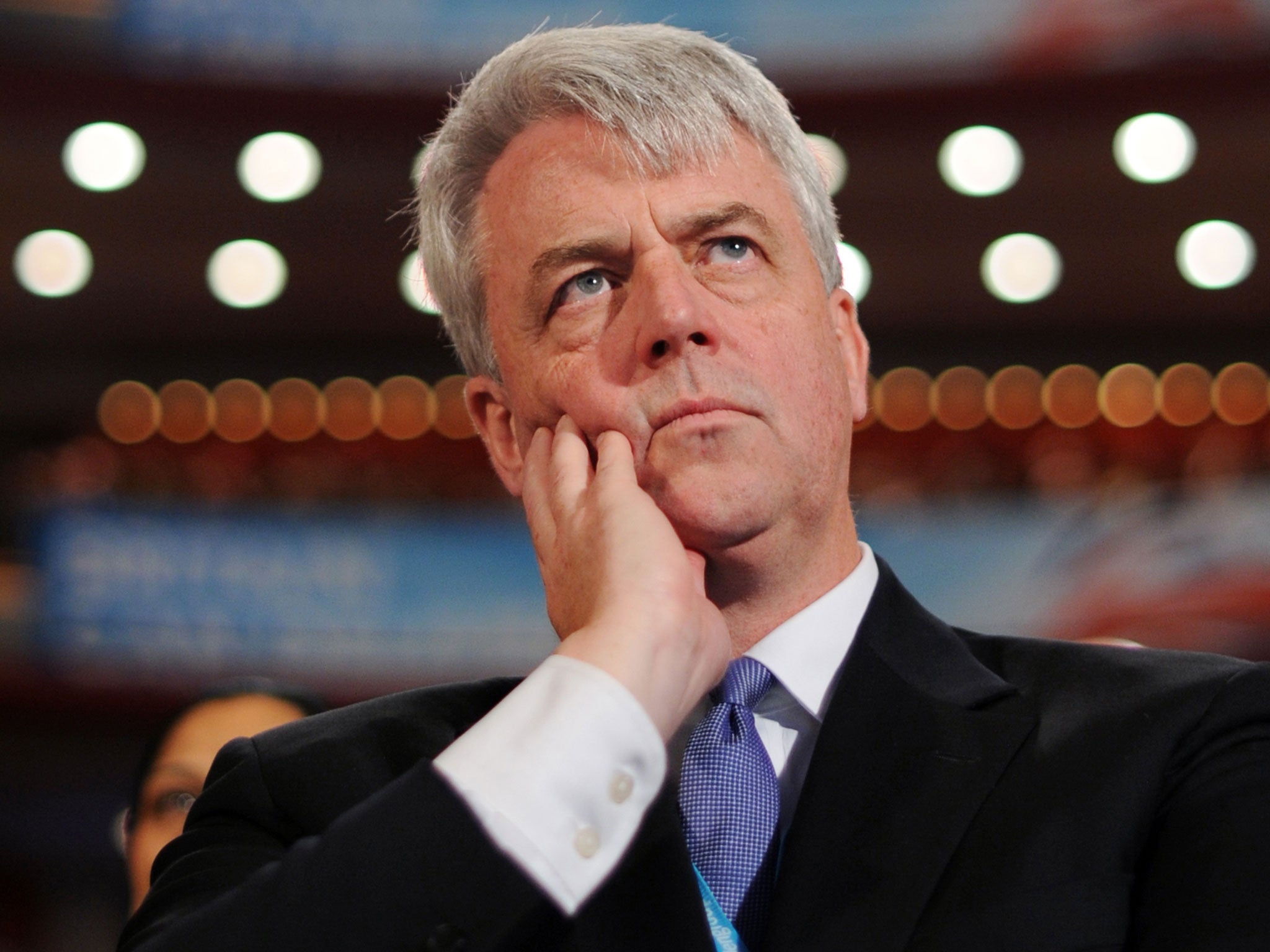Early screening for bowel cancer, the second biggest cancer killer, is the ultimate medical no-brainer
Screening cannot be forced on the unwilling, of course. Tempting as it would be to dispatch NHS hit squads around the country, storming 50th birthday parties in balaclavas and forcing cameras up every birthday boy and girl, there might be civil liberties issues


If some ironies seem too blatant to be worth pointing out, the one involving Andrew Lansley also feels too cruel.
The 61-year-old former health secretary reveals in an article that he has stage three bowel cancer, and blames inadequate screening due to NHS cuts for its late detection. If discovered earlier, the treatment would have been infinitely less brutal and his chances of survival much higher.
You needn’t be a soothsayer to foresee the reaction to this from some of Twitter’s less empathetic commentators. Recalling Lansley’s massively counterproductive efforts to restructure the NHS after the 2010 general election, not to mention his compliant membership of the Tory-led coalition cabinet that championed austerity, their response brings an Emo Philips gag racing to mind.
The comic was in a cafe with a German girlfriend when she moaned about the impossibility of finding a decent bagel in Berlin. “Hmmm,” he muttered, “and whose fault’s that?”
All right, all right, it’s true that no one other than Lansley himself could claim he was a glorious health secretary in the Nye Bevan mould, or that his incomprehensible attempted “reforms” achieved anything beyond harming the NHS and demoralising its staff.
Yet even if he hadn’t advocated earlier bowel cancer screening in the job, as he did, it would be rank idiocy to think that his professional inadequacies invalidate the case he makes now.
Across a range of cancers, including lung and pancreatic as well as colono-rectal, survival rates in the UK lag stubbornly and scandalously behind those in the rest of western Europe, and in some cases the poorer nations of eastern Europe.
Even within Britain, there is a perplexing discrepancy. When I went to the surgery a few years ago about acid reflux, a GP recently arrived from Glasgow reassuringly mentioned that at my then age (50), I’d automatically be offered bowel cancer screening in Scotland.
Elsewhere in the UK, a routine colonoscopy (or its less intrusive cousin, the sigmoidoscopy) is not available until you turn 60.
This is deranged. Most bowel tumours start as benign and asymptomatic polyps, and take 10 to 15 years to change character. Once detected, they are easily removed long before turning malignant with no need for further treatment.
In this case, prevention is not only self-evidently better than cure (assuming a cure is possible), but cheaper. Whipping out a polyp during a colonoscopy costs a tiny fraction of what would later be spent on radical surgery and/or radiotherapy, and/or chemo.
Clearly it helps when public figures such as Lansley and the BBC journalist George Alagiah, whose recurrent bowel cancer is incurable after spreading to the liver, share their experience.
Semi-pro hypochondriacs like me can recite the red flag symptoms from memory (blood in the stool, possibly black and tarry; abdominal pain; change in bowel habits; unexplained weight loss; fatigue). Less neurotic types, who don’t devote three or four hours a day to surfing medical websites, need educating.
It might have saved my sister-in-law, Penny, who died almost 10 years ago from bowel cancer. At her age (late 30s), the disease is so wildly unlikely that she ignored the symptoms for almost two years. By the time she saw a doctor, there was no hope.
Routine screening is no panacea. It wouldn’t have helped Penny or the very few with the desperate luck to develop bowel cancer so young. With other cancers, it isn’t crystal clear it helps in the round at all. Expert opinion is increasingly split about the net value of the PSA blood test for prostate cancer. It produces so many false negatives and false positives, and the lives saved have to be balanced against the trauma and hideous side effects from over-aggressive treatment of indolent tumours that would never become lethal.
But early screening of the asymptomatic for bowel cancer, the second biggest cancer killer, is the ultimate medical no-brainer. No one disputes that it would save thousands of people each year.
While they die early, and untold tens of millions are spent on treatments that should never have been required, the government’s auto-response is to trot out its smug twin mantras, about survival rates rising and more being invested in treatment than ever before. What solace that must be on the palliative care ward.
Bowel Cancer Awareness Month is upon us, and good for it. But awareness of the bleeding obvious symptoms (speaking of which, it’s far more likely to be piles; but always worth checking out) isn’t enough. Lansley had no obvious symptom at all. If Lady L hadn’t badgered him to see the GP about persistent lower back pain, the cancer might have been terminal by the time it was found.
Screening cannot be forced on the unwilling, of course, and almost half of those offered it ignore the offer. Tempting as it would be to dispatch NHS hit squads around the country, storming 50th birthday parties in balaclavas and forcing cameras up every birthday boy and girl, there might be civil liberties issues.
But it can and must be made available. The continued refusal to do so, in the certain knowledge that so many lives would be saved, is nothing less than mass, state sponsored manslaughter by gross negligence.
Join our commenting forum
Join thought-provoking conversations, follow other Independent readers and see their replies
Comments